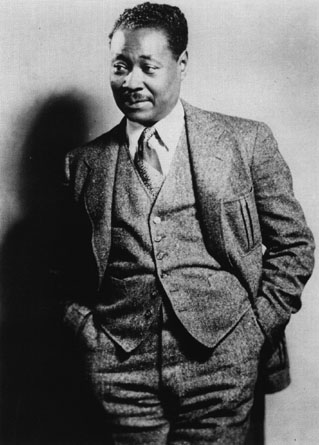 Over the weekend, the New York Times published a piece on a newly discovered 1941 manuscript of a novel by Claude McKay, a major figure of the HarlemRenaissance.
Over the weekend, the New York Times published a piece on a newly discovered 1941 manuscript of a novel by Claude McKay, a major figure of the HarlemRenaissance.
The manuscript, Amiable With Big Teeth: A Novel of the Love Affair Between the Communists and the Poor Black Sheep of Harlem, was discovered in a previously untouched university archive and offers an unusual window on the ideas and events (like Mussolinis invasion of Ethiopia) that animated Harlem on the cusp of World War II. The two scholars have received permission from the McKay estate to publish the novel, a satire set in 1936, with an introduction about how it was found and its provenance verified.(...)This is a major discovery, said Henry Louis Gates Jr., the Harvard University scholar, who was one of three experts called upon to examine the novel and supporting research. It dramatically expands the canon of novels written by Harlem Renaissance writers and, obviously, novels by Claude McKay.More important, because it was written in the second half of the Harlem Renaissance, it shows that the renaissance continued to be vibrant and creative and turned its focus to international issues in this case the tensions between Communists, on the one hand, and black nationalists, on the other, for the hearts and minds of black Americans, said Mr. Gates, the director of the W. E. B. Du Bois Institute for African and African American Research at Harvard.
McKay was also a Catholic convert. In 1999,Commonweal published David Goldweber's article about McKay's pilgrimage to Catholicism. It begins:
There have been a good number of conversions of twentieth-century intellectuals to Catholicism, but few are as intriguing as the conversion of the poet, novelist, and critic Claude McKay. Along with Langston Hughes and Countee Cullen, McKay is considered one of the great poets of the Harlem Renaissance of the 1920s. A man of contradictions, involved by turns with atheism, homosexuality, Islam, Soviet communism, and Marcus Garvey's Black Nationalist movement, McKay at last found that for him only Roman Catholicism offered peace, order, wonder, and truth.
If you'd like read the rest,click here (.pdf).
